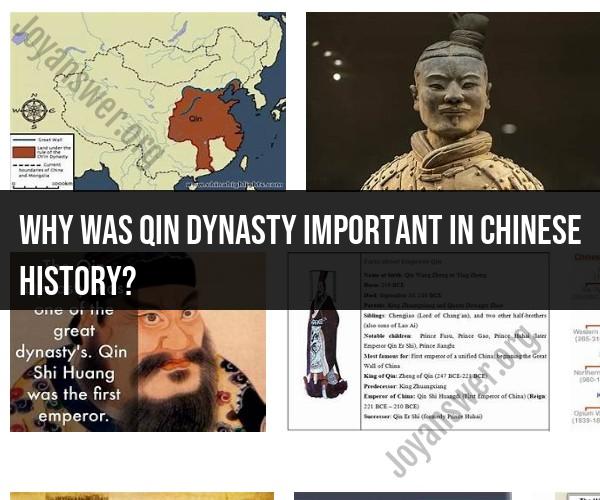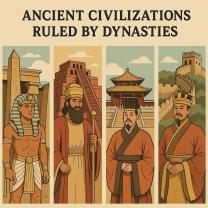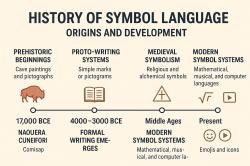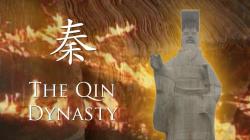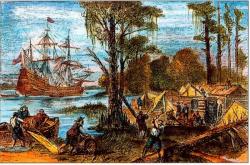Why was Qin dynasty important in Chinese history?
The Qin Dynasty holds immense significance in Chinese history for several key reasons:
Unification of China: Perhaps the most significant achievement of the Qin Dynasty was the unification of China. Prior to the Qin Dynasty, China was fragmented into several warring states. Qin Shi Huang, the first emperor of the Qin Dynasty, successfully conquered and unified these states, creating a single, centralized Chinese empire. This laid the foundation for the political and cultural unity that has characterized China for most of its history.
Standardization: The Qin Dynasty played a pivotal role in standardizing various aspects of Chinese society. It introduced a common system of weights, measures, and currency, making trade and administration more efficient. The standardization of the writing system, exemplified by the creation of a uniform script known as "Small Seal Script," had a lasting impact on Chinese culture and communication.
Centralized Bureaucracy: The Qin Dynasty established a centralized bureaucratic system to govern its vast empire. This system of administration, with officials appointed based on merit rather than hereditary status, became a model for subsequent Chinese dynasties. It laid the groundwork for the highly efficient bureaucracy of later periods, particularly the Han Dynasty.
Construction Projects: Qin Shi Huang initiated ambitious construction projects that left a lasting mark on China. The most famous of these projects was the Great Wall of China, which, although significantly expanded by later dynasties, had its origins in the efforts to defend against northern invasions during the Qin Dynasty.
Legalism: The Qin Dynasty embraced Legalism as its governing philosophy. Legalism stressed strict adherence to laws, harsh punishments for violations, and the centralization of power in the hands of the ruler. While Legalism was often criticized for its harshness, it influenced the development of Chinese political thought and governance for centuries.
First Emperor: Qin Shi Huang declared himself the First Emperor of China (Qin Shi Huangdi), signaling a shift from feudalism to an autocratic imperial system. This model of governance persisted in China for over two millennia, with subsequent dynasties following the imperial format established by the Qin.
Cultural Legacy: The Qin Dynasty's cultural influence is evident in areas such as literature, art, and philosophy. The standardization of the writing system and script had a profound and enduring impact on Chinese culture, enabling the exchange of ideas and knowledge across the empire.
Terra-Cotta Army: One of the most famous archaeological discoveries in the world, the Terra-Cotta Army, was found in the mausoleum of Qin Shi Huang. This remarkable collection of life-sized terracotta soldiers, horses, and chariots offers valuable insights into ancient Chinese art, craftsmanship, and military technology.
Despite its relatively short duration (221 BCE to 206 BCE), the Qin Dynasty's contributions and legacy continue to shape Chinese civilization. It set the stage for the enduring idea of a unified China and laid the groundwork for the political, cultural, and administrative systems that would define China for millennia to come.
The Significance of Qin Dynasty Unification and Centralization
The Qin dynasty (221-206 BCE) was the first unified dynasty in Chinese history. Its unification and centralization of China had a profound impact on the country's development.
Before the Qin dynasty, China was divided into many smaller states that were constantly at war with each other. The Qin dynasty conquered these states and established a centralized government with a single emperor. This unification allowed for greater stability and order, and it also facilitated trade and commerce.
The Qin dynasty also centralized the Chinese bureaucracy and legal system. This created a more efficient and effective government, and it also helped to promote social order.
The Qin dynasty's unification and centralization of China had a lasting impact on the country's development. It created the foundation for the Chinese empire, which lasted for over two millennia.
Qin Legalist Reforms and Their Impact on Imperial China
The Qin dynasty implemented a number of Legalist reforms, which were based on the philosophy of Legalism. Legalism is a political philosophy that emphasizes the importance of law and order in maintaining social order and political stability.
The Qin dynasty's Legalist reforms included:
- Centralization of power: The Qin dynasty centralized power in the hands of the emperor. This was done by abolishing the feudal system and establishing a centralized bureaucracy.
- Legalism: The Qin dynasty implemented a legal system based on Legalist principles. This legal system was harsh and punitive, but it was effective in maintaining order.
- Standardization: The Qin dynasty standardized weights, measures, and currency. This made it easier to trade and conduct business throughout the empire.
The Qin dynasty's Legalist reforms had a profound impact on imperial China. The Legalist system of government became the standard for subsequent dynasties, and the Qin dynasty's reforms set the stage for the development of a unified and centralized Chinese empire.
Engineering Feats and Cultural Legacy of the Qin Dynasty
The Qin dynasty was responsible for a number of impressive engineering feats, including:
- The Great Wall of China: The Qin dynasty began construction on the Great Wall of China, which is one of the largest and most impressive engineering feats in human history.
- The Terracotta Army: The Qin dynasty built a massive terracotta army to guard the tomb of the first emperor of China. This army is one of the most important archaeological discoveries in Chinese history.
- The Grand Canal: The Qin dynasty began construction on the Grand Canal, which linked northern and southern China. This canal played a vital role in trade and communication for centuries.
The Qin dynasty also had a significant impact on Chinese culture. The Qin dynasty standardized the Chinese writing system, which helped to promote literacy and communication throughout the empire. The Qin dynasty also promoted Confucianism, which became the dominant ideology in China for centuries.
The Qin dynasty was a relatively short-lived dynasty, but it had a profound impact on Chinese history. The Qin dynasty's unification and centralization of China, its Legalist reforms, and its engineering feats laid the foundation for the Chinese empire, which lasted for over two millennia.
Conclusion
The Qin dynasty was a pivotal period in Chinese history. Its unification and centralization of China, its Legalist reforms, and its engineering feats laid the foundation for the Chinese empire, which lasted for over two millennia. The Qin dynasty also had a significant impact on Chinese culture, standardizing the Chinese writing system and promoting Confucianism.
